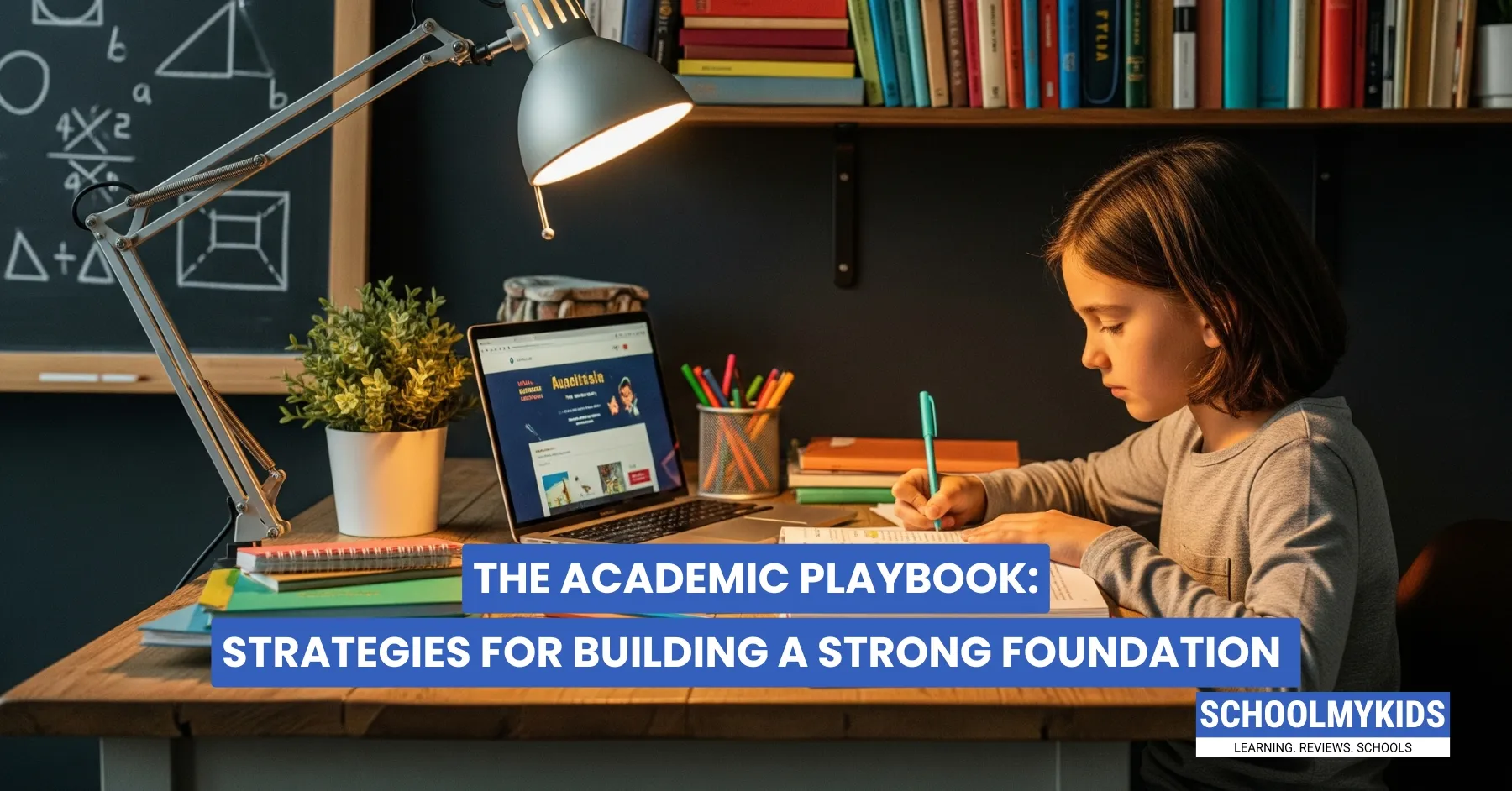If you are a student or a parent, you’ve probably noticed how education feels very different from what it used to be. The old days of memorizing textbooks and waiting for the teacher to explain everything are long gone. Today’s classrooms are full of new challenges like digital tools, AI, rising competition, and constantly changing expectations. Parents often worry, Is my child getting the right foundation?
The truth is, building a strong academic foundation today requires more than just studying hard. It’s about building skills, habits, and mindsets that fit this era of learning.
Understanding Today's Education Reality
The classroom isn't just four walls anymore. It's a hybrid space where you might attend math class in person on Monday, join history class on Zoom on Tuesday, and complete science labs through virtual reality on Wednesday.
Students today are expected to be digital natives who can easily switch between platforms, collaborate with classmates across time zones, and adapt to new learning technologies that seem to pop up every semester. At the same time, they're still expected to learn traditional subjects like reading, writing, and arithmetic.
The pressure is intense. Colleges are more competitive than ever, standardized tests keep changing their formats, and everyone's talking about how AI might make certain skills obsolete. It's enough to make anyone's head spin.
The New Academic Foundation: What Really Matters
Forget everything you think you know about "studying hard." Today's strong academic foundation isn't just about memorizing facts or getting perfect grades. It's about developing skills that will help you whether you're competing with AI or collaborating with it.
Digital Literacy Beyond Social Media
We know many of you know how to post on Instagram, but do you know how to evaluate if a source is reliable? Can you spot AI-generated content? Do you understand how to use technology as a learning tool rather than just entertainment?
Digital literacy now means understanding how algorithms work, knowing when and how to use AI tools appropriately, and being able to create digital content that stands out in a crowded online world.
Critical Thinking in the Age of Information Overload
With unlimited information at our fingertips, the skill isn't finding answers anymore; it's knowing which questions to ask. Students need to develop the ability to analyze, synthesize, and evaluate information from multiple sources.
This means learning to read between the lines, understanding bias in media, and developing healthy skepticism about information, even when it comes from sources that seem authoritative.
Practical Strategies for Students
1. Master the Art of Strategic Learning
Gone are the days when you could just highlight everything and hope for the best. Today's successful students use active learning techniques:
- The Feynman Technique: Explain academic concepts in simple terms as if teaching a younger sibling
- Spaced Repetition: Review material at increasing intervals rather than cramming
- Interleaving: Mix different types of problems regarding your subjects in study sessions
2. Build Your Personal Learning Ecosystem
Create a study environment that works with today's reality, not against it:
- Use apps like Forest or Cold Turkey to manage digital distractions
- Set up dedicated spaces for different types of learning (reading corner, computer desk, creative space)
- Establish routines that work for both in-person and online learning days
3. Develop AI Collaboration Skills
Instead of fearing AI, learn to work with it effectively:
- Use AI tools like ChatGPT or Grammarly as writing assistants, not replacements for your own thinking
- Practice prompting AI effectively to get useful responses
- Always fact-check AI-generated content and understand its limitations
- Focus on developing skills that complement AI: creativity, emotional intelligence, and complex problem-solving
4. Cultivate Adaptability
The one constant in today's education is change. Build flexibility into your learning approach:
- Stay curious about new learning platforms and tools
- Practice switching between different types of tasks and learning environments
- Develop comfort with uncertainty and change
- Build a growth mindset that sees challenges as opportunities
Strategies for Parents: Supporting Without Overwhelming
Parents, your role has evolved too. You're not just helping with homework anymore; you're guiding your child through a complex digital era while probably learning alongside them.
Stay Informed but Don't Panic
Yes, education is changing rapidly, but don't let fear drive your decisions. Stay informed about your child's school policies regarding technology use, AI tools, and online learning platforms. Ask teachers how you can support learning at home without doing the work for your child.
Focus on Process Over Product
Instead of obsessing over grades, pay attention to how your child approaches learning. Are they developing good study habits? Can they manage their time effectively? Are they building resilience when facing challenges?
Create Tech-Life Balance
Help your child develop healthy relationships with technology. Set boundaries around screen time, create tech-free zones for family activities, and model good digital citizenship yourself.
Building Skills for Tomorrow's World
The job market your child will enter looks nothing like the one you entered. According to recent studies, many jobs that will exist in 10 years haven't been invented yet. This means focusing on transferable skills:
- Communication: Both digital and face-to-face
- Collaboration: Working effectively in diverse, often virtual teams
- Creativity: Thinking outside the box and generating original ideas
- Complex Problem-Solving: Breaking down big challenges into manageable parts
- Emotional Intelligence: Understanding and handling emotions in yourself and others
Conclusion
Building a strong academic foundation in this age isn't about being perfect at everything or keeping up with every new trend. It's about developing core skills that will serve you no matter how much the world changes.
Focus on becoming a lifelong learner who can adapt, think critically, and use technology as a tool rather than a crutch. Remember, the goal isn't to compete with AI, but to become the kind of human that AI can't replace: creative, empathetic, and capable of complex reasoning.








Be the first one to comment on this story.